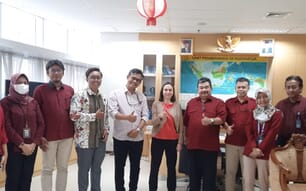The determination came after an extensive evaluation of BAP farm standards for finfish and crustaceans conducted by the Seafood Watch science staff. The process of benchmarking existing eco-certification programs against Seafood Watch criteria began more than two years ago when Seafood Watch business partners sought guidance in navigating a marketplace of proliferating global eco-certification programmes.
In order to meet the Seafood Watch “Good Alternative” recommendation bar, the GAA strengthened its certification requirements for habitat mitigation, water discharge and escapes.
“This is a landmark recognition for the BAP certification programme,” said Peter Redmond, BAP vice president of market development. “We have strived for years to deliver high-quality seafood to the marketplace that is farmed in a responsible way.”
“We are very pleased with this positive benchmarking by the Monterey Bay Aquarium and would like to thank all those involved in making this happen,” Redmond added. “We are proud of the association with the Monterey Bay Aquarium Seafood Watch program, and hope to build on this relationship for years to come.”
Completed in March 2013, the BAP farm standards for finfish and crustaceans address environmental and social responsibility, food safety, animal welfare and traceability more rigorously than the standards they replaced, including the BAP farm standards for shrimp.
“Seafood Watch has benchmarked more than 30 fisheries and aquaculture eco-standards developed under robust eco-certification programs,” said Jennifer Dianto Kemmerly, director of the Monterey Bay Aquarium Seafood Watch program. “We strongly support the concept of independent eco-certification programs to identify sustainable seafood options. Our benchmarking assessment is a way to recognize the growing number of robust programs in the marketplace.”
“Seafood buyers can have confidence that BAP-certified farmed shrimp is raised in an environmentally responsible manner,” said Kemmerly.
The designation of farmed shrimp certified to BAP two-star, three-star and four-star standards as equivalent to a Seafood Watch “Good Alternative” significantly increases the volume of farmed, warmwater shrimp in the marketplace that is a more environmentally responsible option for consumers and businesses.
At the end of 2013, the annual output of BAP-certified shrimp farms totaled 132,000 metric tons.
Since its inception in 1999, Seafood Watch has become North America’s leading source of science-based information to help transform the seafood market in ways that preserve healthy ecosystems and sustain ocean wildlife.
“Today, more than 100,000 business locations in North America rely on Seafood Watch science to inform their seafood purchasing decisions,” said Kemmerly. “Benchmarking the many robust eco-certification programs against Seafood Watch criteria means these businesses have hundreds more options to choose from.”



